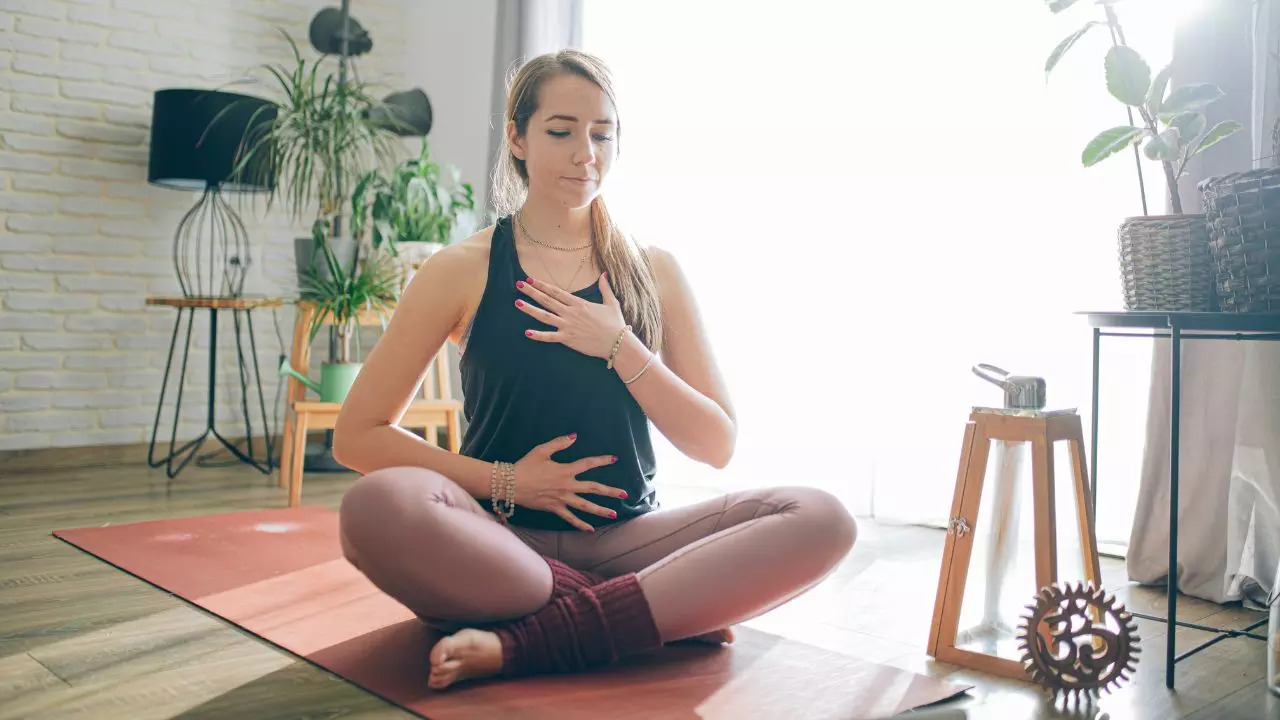Contents
What are diaphragmatic breathing exercises that can help deal with anxiety?How to do breathing exercises?Benefits of diaphragmatic breathing exercisesActivates the parasympathetic nervous systemlowers heart ratereduces stress hormonesImproves focus and mindfulnessImproves oxygen flowRelieves muscle tensioncontrols breathing patterns
-
news
-
Health
-
mental health
What are diaphragmatic breathing exercises that can help deal with anxiety?
There are many ways to reduce your anxiety, one of them is diaphragmatic breathing exercises. In this process you use the diaphragm to take deep breaths. When you breathe normally, you don’t use your lungs to their full capacity. Read on to know how to do this exercise and its benefits.

Know what is diaphragmatic breathing exercise which provides relief from anxiety
Anxiety disorder is a condition in which you have intense, excessive, and persistent worry and fear about everyday situations. People who have anxiety disorders have repeated episodes of intense worry and sudden feelings of fear or terror that reach a peak within a few minutes, also known as panic attacks. This feeling of anxiety and panic can affect your ability to perform daily activities. Out of proportion to the actual threat, it can also be difficult to control and may persist for a long time. In such a situation, the person starts avoiding places or certain situations to stop these feelings.
There are many ways to reduce your anxiety, one of them is diaphragmatic breathing exerciseIn this process you use the diaphragm to take deep breaths. When you breathe normally, you don’t use your lungs to their full capacity. diaphragmatic breathing This allows you to use your lungs at 100% capacity to increase lung function.
How to do breathing exercises?
To practice this breathing technique, first start by sitting or lying comfortably at one place. Then, place one hand on your chest and one hand on your stomach just below the ribs.
Breathe in slowly through your nose and feel the air moving towards your stomach.
Your stomach will expand and move out but your chest should remain stable.
Then, purse your lips and exhale slowly for a few seconds.
You can repeat this cycle for better results.
Benefits of diaphragmatic breathing exercises
Activates the parasympathetic nervous system
Diaphragmatic breathing helps activate the parasympathetic nervous system. It helps to counteract the ‘fight or flight’ response triggered by anxiety, helping to relax and calm the body.
lowers heart rate
Slow and deep breathing helps reduce the heart rate which usually increases during anxiety. By slowing the heart rate, diaphragmatic breathing helps reduce physical symptoms of anxiety such as nervousness and breathlessness.
reduces stress hormones
Deep breathing reduces the secretion of cortisol which is the body’s primary stress hormone. Lowering cortisol levels helps the body to effectively manage stress and reduce overwhelming sensations caused by anxiety.
Improves focus and mindfulness
When you focus on your breathing, it helps keep your attention away from anxious thoughts and worries. It helps with mindfulness, which helps you stay in the present moment and reduce the racing thoughts associated with anxiety.
Improves oxygen flow
Diaphragmatic breathing increases the amount of oxygen which improves blood flow and provides more oxygen to the brain. It helps you think clearly, keep anxious thoughts at bay and improve mental clarity.
Relieves muscle tension
Anxiety often causes muscle tension, especially in the neck, shoulders and chest. Such deep breathing exercises can help relieve this stress, promoting a sense of physical relaxation and reducing the discomfort caused by anxiety.
controls breathing patterns
Anxiety can cause shallow and rapid breathing which can lead to hyperventilation. Diaphragmatic breathing helps regulate breathing patterns, making each breath deeper and slower, reducing the feeling of being out of breath.
Get the latest news live on Times Now with breaking news and top headlines on mental health, wellness and more from around the world.


